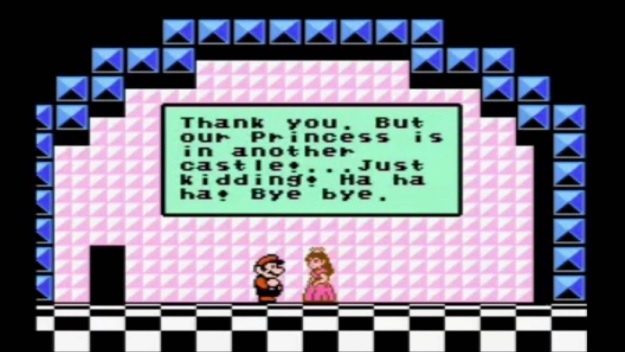The World Health Organization announces that it has now listed “Gaming Disorder” as an official mental health condition.
The three criteria for getting diagnosed? “Gaming behavior” that pushes aside other activities to a significant degree, “impaired control over gaming,” and “an increase in gaming despite negative consequences.”
A couple caveats.
The American Psychiatric Association has yet to announce it as an official mental health condition, and there are some health experts who worry about over-diagnosing people who just like to play video games a lot (pretty much every kid, except the super celebrated ones who creatively play in the woods with open-ended toys, as mandated by popular podcasts on parenting).
Some warned that it may cause unnecessary concern among parents.
“People need to understand this doesn’t mean every child who spends hours in their room playing games is an addict, otherwise medics are going to be flooded with requests for help,” said Dr. Joan Harvey, a spokeswoman for the British Psychological Society.
Dr. Leonard Jason tells the Chicago Tribune that it’s good to highlight the issue, but parents just need to know that only 1-3% of kids who love playing video games will actually develop an addiction.
“Those are the extreme ones, and those are the ones who, they’re basically doing gaming over other things in their life and it escalates. It basically gets them into trouble.
So that’s something that parents probably can pick up. For example, the kid comes home from school or doesn’t even go to school, games from school into the evenings and on weekends. A child is basically spending all their leisure time not socializing with others, not doing their homework, not doing their chores, but gaming.”
So does your kid have a gaming disorder? Do you?
My sense is that this is like Supreme Court Justice Potter Stewart’s famous quip about pornography: “You know it when you see it.”
If a parent is trying to figure out whether their kid has a gaming disorder, the kid probably doesn’t. It would probably be crystal clear. Addictions are often clearest — not to the addict — but to the ones who love them. And remember, only 1-3% of kids who love playing video games are likely to develop a genuine disorder.
Nevertheless, here’s a good guide on helping someone with their video game addiction. With both video game addiction and treatment, there’s significant overlap with substance abuse issues, and just like with substance abuse, it’s important to get to whether there’s underlying depression, anxiety, or trauma at home that might be feeding into it.
In fact, Dr. Andrew Saxon, a professor of psychiatry at the University of Washington’s School of Medicine, tells the LA Times that those with gaming disorders are, indeed, more likely to also suffer from depression, anxiety, or ADHD.
That makes a lot of sense. Video games could be a way of retreating from a dysfunctional family, or it could be about creating a new life through video games because you’re so depressed and anxious about your real one.
There are actually even video game rehab centers now, and here’s a resource for picking out the best one.
Meanwhile, if you are personally struggling with it, limited data suggests CBT and counseling might help.

